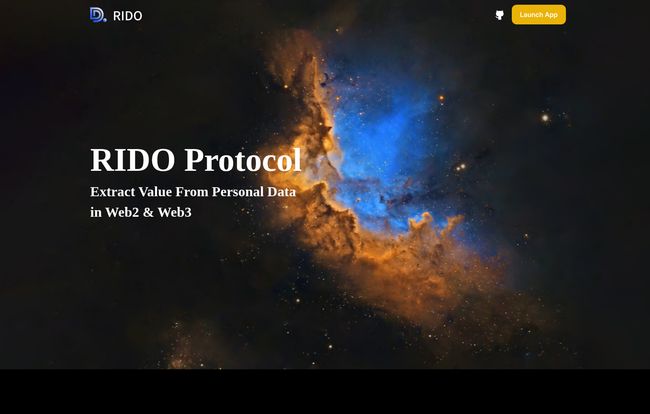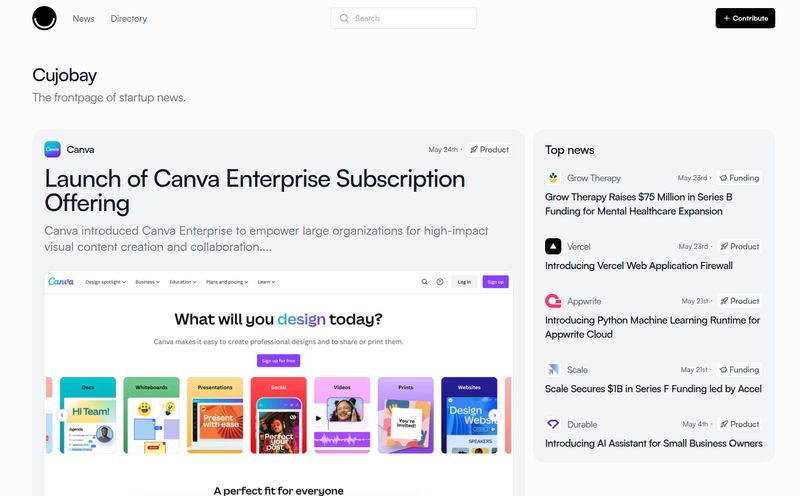For years, we’ve all been part of this unspoken, slightly creepy deal. We get to use shiny apps and platforms for “free,” and in return, our data gets scraped, packaged, and sold to the highest bidder. We've all heard the saying: if you're not paying for the product, you are the product. It’s a bit of a cliché now, but it stings because it’s true. Every click, every search, every late-night doomscroll contributes to someone else's bottom line.
For a while, that was just the price of admission to the digital world. But the conversation is changing, especially with the rise of Web3. The whole philosophy behind Web3 is about decentralization and ownership. Taking power from the giants and giving it back to the users. And that’s where things get interesting, and where platforms like Rido Protocol are starting to make some noise.
I’ve been watching the “DataFi” (Data Finance) space for a while, and it’s filled with ambitious projects. Rido caught my eye because it’s not just talking hypotheticals; it's trying to build the actual plumbing for a new data economy. So, is it the real deal or just another flash in the Web3 pan? Let’s get into it.
So, What on Earth is Rido Protocol?
Imagine if your personal data wasn't a free-for-all buffet for tech companies, but more like your own private property. A digital house. You hold the keys, you decide who comes in, and if someone wants to, say, run a business out of your living room (like using your data for ad targeting), they have to pay you rent.
That’s the core idea behind Rido Protocol. It's a DataFi infrastructure designed to help you, the user, finally get some value from the massive trail of data you create every day. It aims to clarify who owns what online, and spoiler alert: they think it should be you. It’s about turning your data from a liability into an asset.
The Core Mechanics: How Does This Even Work?
This all sounds great in theory, but how does it actually function? Looking at their schematics, it’s built on a few clever pillars.
Programmable Data and Access Control
This is the secret sauce, in my opinion. Rido isn't just about putting a 'For Sale' sign on your data. It's about giving you programmable control. Think of it like a smart contract for your personal information. You can set specific rules, like, "You can use my shopping habits for market research, but you can't see my name or location," or "You can access my listening history for 30 days for a one-time fee." This granular control is a huge leap from the all-or-nothing terms of service we blindly accept today.
Bringing Your Web2 Self into Web3
One of the biggest hurdles for Web3 is that all our history, all our data, is stuck in Web2 (think Google, Facebook, etc.). Rido tackles this head-on with a plan to migrate Web2 data. The images show they rely on something called the BNB Attestation Service to do this, which essentially acts as a trusted verifier to bring off-chain data on-chain. It’s a bit technical, sure, but it's a necessary bridge. Without it, you’d be starting from scratch in Web3, a digital ghost with no past.

Visit Rido Protocol
A Universal Data Passport
The cross-application sharing feature is fascinating. Instead of every new dApp (decentralized application) needing to build its own profile of you from the ground up, you could grant them access to your Rido data profile. Your preferences, settings, and verified information could move with you across the decentralized web. This could mean more personalized experiences from day one, without having to give away your raw data to every single app you try. It’s like a universal remote for your digital identity.
The Big Payoff: A Data Marketplace and Your AI Twin
Okay, control is great. But let’s talk money. Rido proposes a two-way data marketplace. This is where the DataFi concept really comes to life. As a user, you could list bundles of anonymized data for sale. On the other side, developers, researchers, or companies could bid on this data to train their AI models, conduct market research, or build better products. The entire transaction is transparent, and you get a cut. Finally.
And then there's the AI angle, which is either brilliant or slightly dystopian, depending on your perspective. Rido plans to use this data to power a decentralized recommendation system, leading to features like:
- Personalized dApps: Imagine a decentralized app store that already knows what you might like, without sending your activity log back to a central server.
- Virtual Life: This one is more out-there. The idea of creating a digital assistant or even a 'virtual life' powered by your own verified data is peak sci-fi. It could learn your patterns and act on your behalf. Will it be our personal Jarvis? We'll have to wait and see.
My Honest Take: The Good, The Bad, and The Complicated
No platform is perfect, especially one this ambitious. I’ve been in the SEO and digital trends game long enough to know you have to look past the shiny homepage. Here’s how I see it.
What Gets Me Excited
Honestly, the biggest pro is the philosophy itself. True data ownership is the holy grail for a more equitable internet. The ability to directly monetize personal data is a game-changer for regular users. And the cross-application sharing could genuinely solve the cold-start problem for so many new apps and platforms, fostering more innovation. It’s a powerful vision, and the architecture seems well-thought-out, not just a bunch of buzzwords.
The Potential Roadblocks
On the flip side, let's be pragmatic. Defining data variables and access rules could get very complex for the average user. If it's not intuitive, it won't get used. Secondly, the reliance on the BNB Attestation Service creates a dependency. What if that service changes? And of course, the big one: privacy and security. Whenever you're talking about putting personal data on a ledger—even with controls—there are risks. It has to be bulletproof.
The biggest challenge, though, is the classic network effect. A marketplace is useless without both buyers and sellers. Rido needs a massive wave of user adoption to make its data marketplace valuable, and it needs developers to build on it to attract those users. It's a real chicken-and-egg situation.
What's the Price of Entry?
This is a key question for any new platform. At the time of writing this, there's no public information on pricing for Rido Protocol. I did some digging, and the pricing page mentioned in some documentation appears to be a 404 error, which happens. It's a new project, afterall. My guess? It will likely be free for users to set up their data profiles, with the protocol taking a small transaction fee from the data marketplace sales. That seems like the most logical model, but for now, it's just speculation.
Is Rido Protocol the Future?
Rido Protocol is undeniably ambitious. It's trying to rewire a fundamental part of how the internet works. Will it succeed? I don't have a crystal ball. Its success hinges entirely on execution and adoption. It needs to be simple enough for my mom to use but robust enough for a data scientist to trust.
But am I optimistic? Yeah, I am. Projects like this are pushing the conversation forward. They are building the tools that might, just might, lead to a web where our data serves our own interests. I'm not ready to call it the future just yet, but it's a future I'm definitely rooting for. Rido Protocol is one I’ll be keeping a close eye on.
Frequently Asked Questions
1. What is Rido Protocol in simple terms?
Think of it as a secure digital vault for all your online data. You hold the only key, and you can charge people a small fee to peek inside at specific, non-personal parts of it, but only on your terms.
2. Can I really make money with Rido Protocol?
That's the goal. Through its proposed data marketplace, you'll be able to list anonymized parts of your data for sale to developers or researchers. How much you could make depends on demand, but it provides a direct path to monetization that doesn't exist now.
3. Is my data safe on Rido Protocol?
Rido is being built with a Web3 security mindset, using programmable controls and decentralization. However, like any platform dealing with personal data, there are inherent risks. The security and privacy protections would need to be rigorously tested and proven before it gains widespread trust.
4. Do I need to be a crypto expert to use Rido?
While it's built on Web3 tech, the goal for platforms like this is always to create a user-friendly interface. Ideally, you won't need to understand the complex backend to manage your data, but some familiarity with digital wallets will probably be helpful initially.
5. What is "DataFi"?
DataFi stands for Data Finance. It's an emerging concept in Web3 that treats data as a financial asset class. It combines the principles of decentralized finance (DeFi) with data ownership, creating ways for people to control, trade, and earn from their personal information.
6. How does Rido integrate with Web2 apps like Google?
It plans to use a verification system, like the BNB Attestation Service (BAS), to act as a bridge. BAS can verify facts about you from the Web2 world (e.g., "this person has a Twitter account with over 1000 followers") and bring that verified proof into the Web3 ecosystem without exposing your raw data.
Reference and Sources
- BNB Chain. (2023). Introducing BNB Attestation Service (BAS), Bringing Web2 Data On-chain. Retrieved from https://www.bnbchain.org/en/blog/introducing-bnb-attestation-service-bas-bringing-web2-data-on-chain
- Rido Protocol Website (Based on provided imagery and information).



